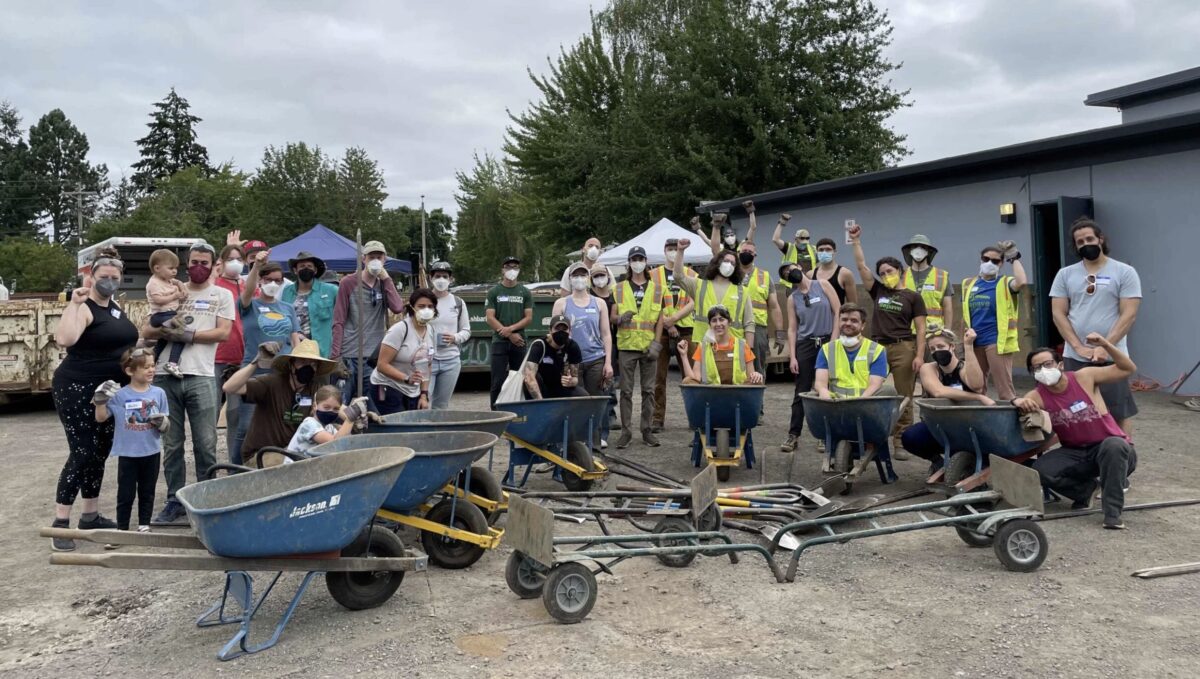
It is endlessly hot in Portland this week. Due to the ‘urban heat island effect’, some areas of the region will be hotter than others. A lack of tree canopy and large expanses of concrete and asphalt are to blame for this imbalance of heat.
We hope that people start looking at pavement as an opportunity to be something else
– Lisa Huntington, Depave board member
Communities like Lents, where temperatures hit 124 degrees during the June 2021 heat wave, need relief. Unfortunately, it takes decades for a budding tree canopy to provide this relief. So what can we do to bring cooling relief to the disproportionately hotter areas of the region?
We can remove asphalt.
Portland based nonprofit Depave is in the business of turning ‘parking lots to paradise.’ Since its inception in 2008, the organization has completed 70 depaving projects. In a process board member Lisa Huntington describes as a barn raising in reverse, Depave brings the community together to invest their time and energy to remove an underused area of asphalt. In its place, spaces can come alive with plants, people or both.
“We hope that people start looking at pavement as an opportunity to be something else,” Huntington shared at a recent event.
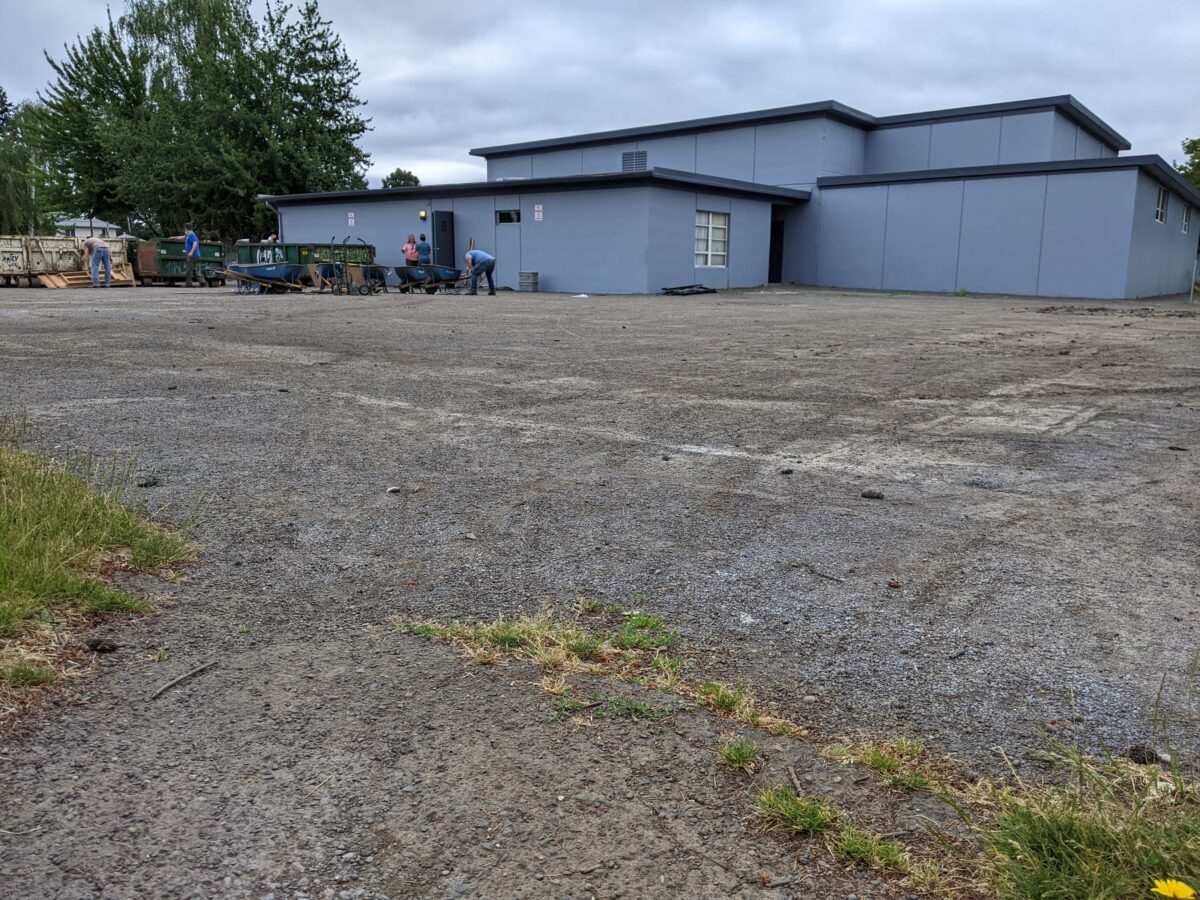
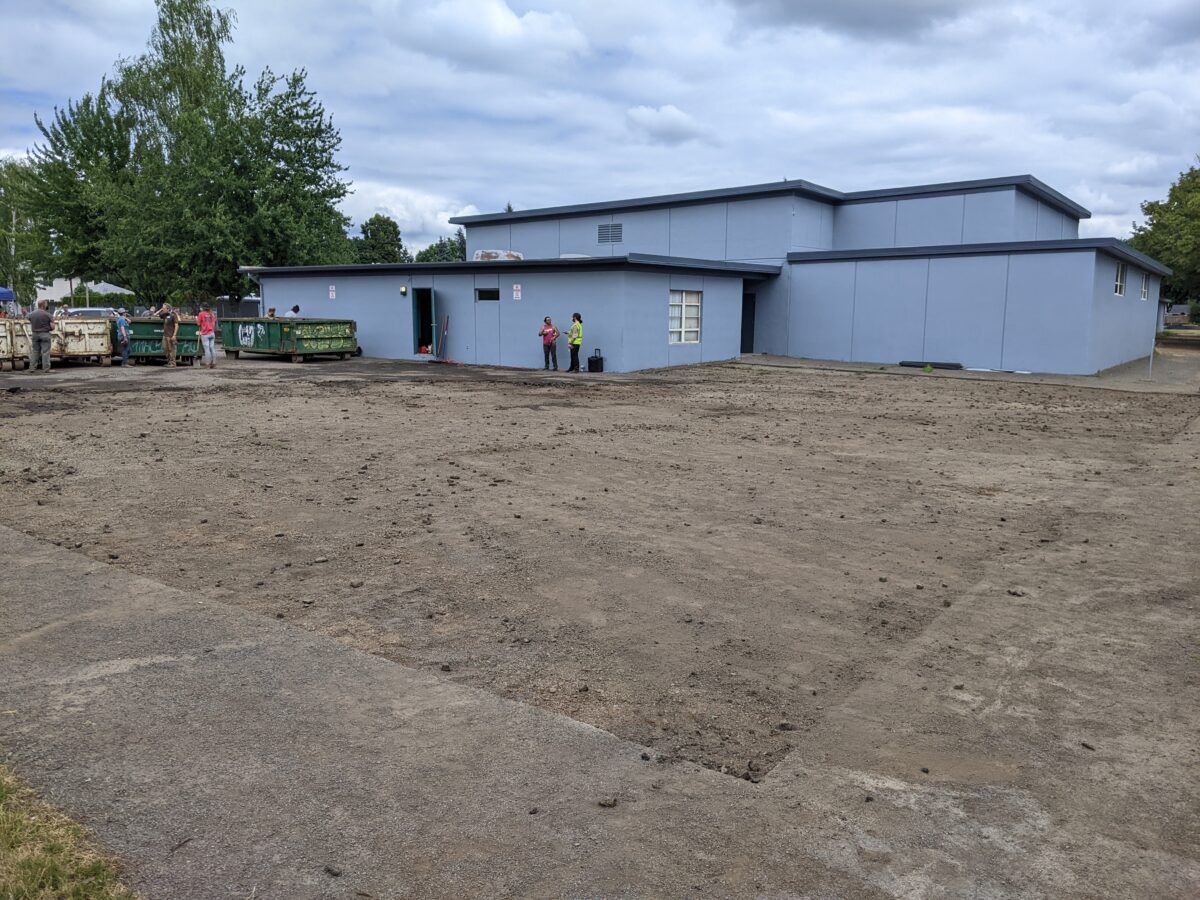
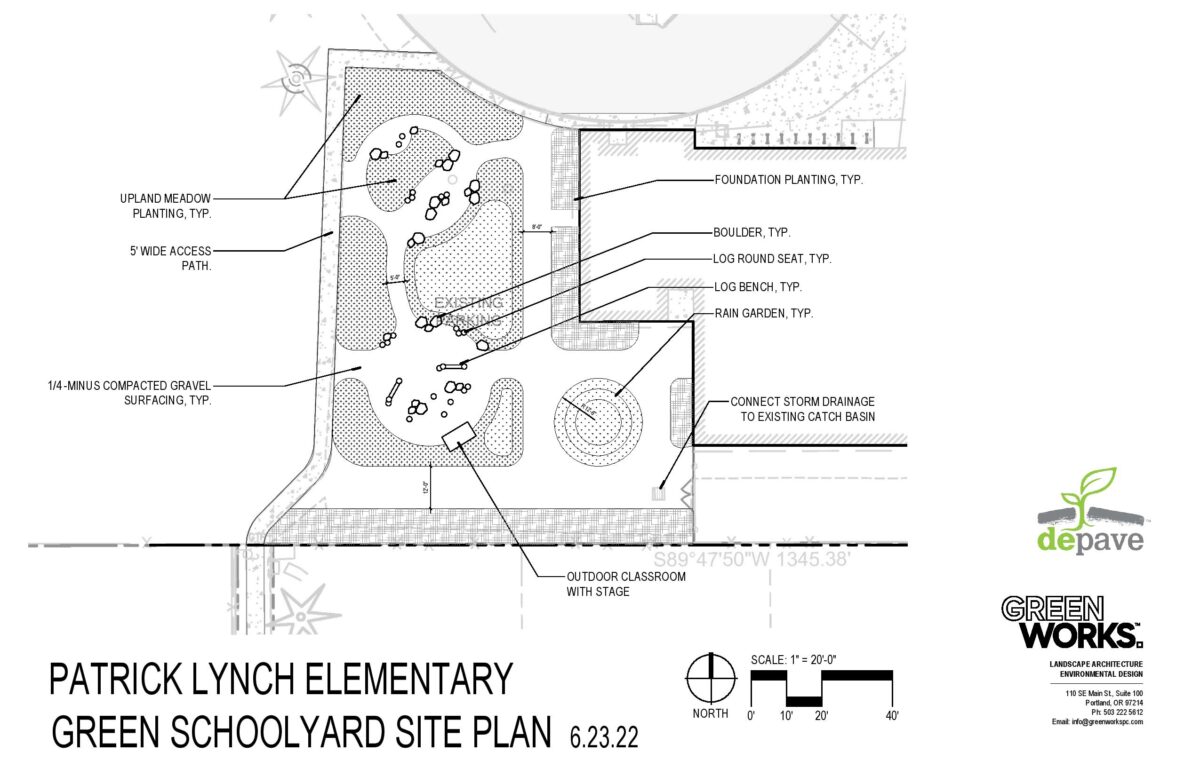
I joined 35 other volunteers to depave 7,000 square feet of asphalt at East Portland’s Patrick Lynch Elementary a few weekends ago. What was once an expanse of asphalt will be transformed into an educational and community destination. Depave Communication and Engagement Coordinator Katherine Rose said the transformed site will have, “a labyrinth, outdoor classroom space, a rain garden, and lots of other assets that will be really helpful for the students and beneficial to the whole community.” Check out some before and after photos of the work below.
Depave volunteer crew leaders provided guidance, training, and a pre-work stretch clinic. During the hearty lunch of tacos, I spoke with a few first time volunteers about their experience. Doug, a first time volunteer, shared that he was depaving because he believes building community leads to a stronger and friendlier world. “I’m all for helping out. It feels really good to be working as a team.”
I saw folks who had just met work together like they were close friends. People made silly jokes to their new companions while working to fill wheelbarrows with countless pounds of fossil fuel based asphalt. The work itself was tiring and everyone got ridiculously dirty. At the end of the day I saw many leave with a big smile on their face – the truest sign of a healthy community working toward a shared goal.
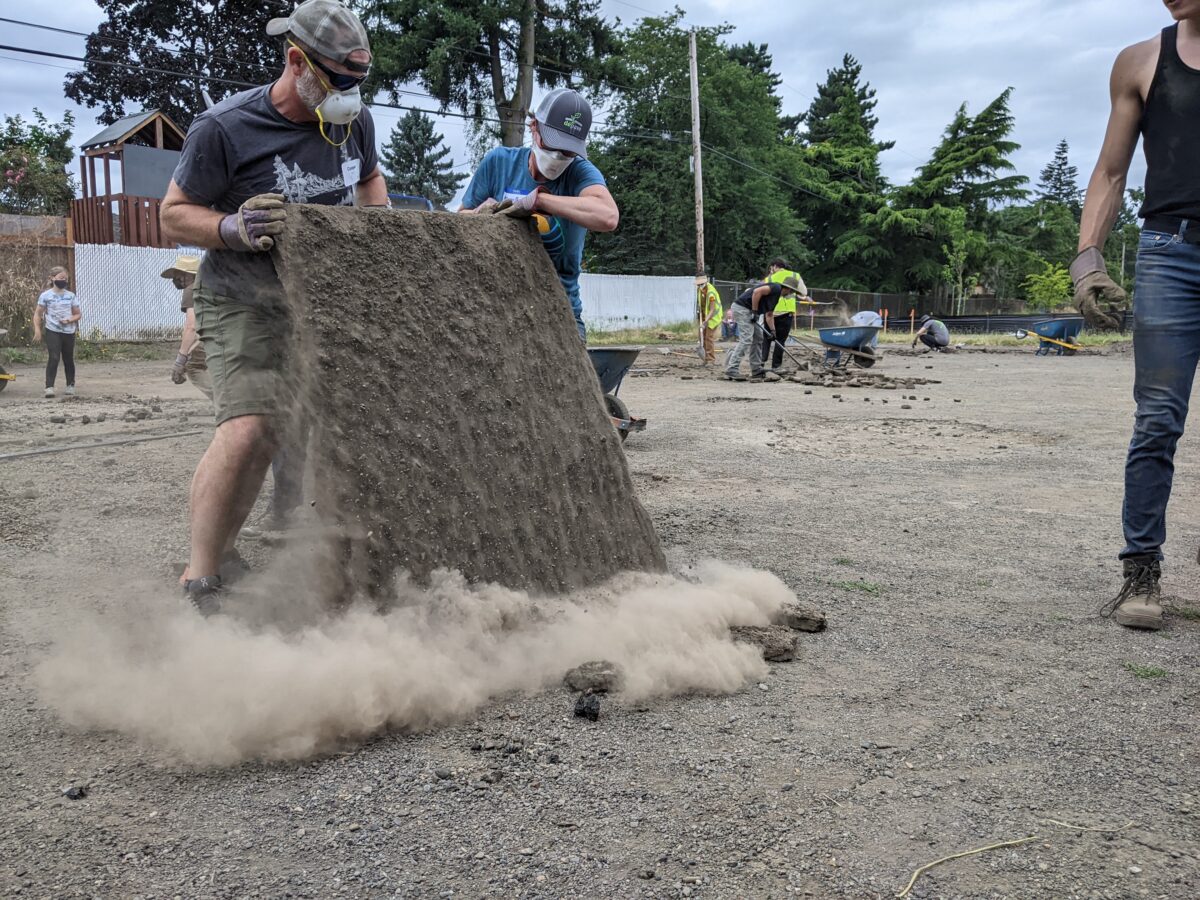
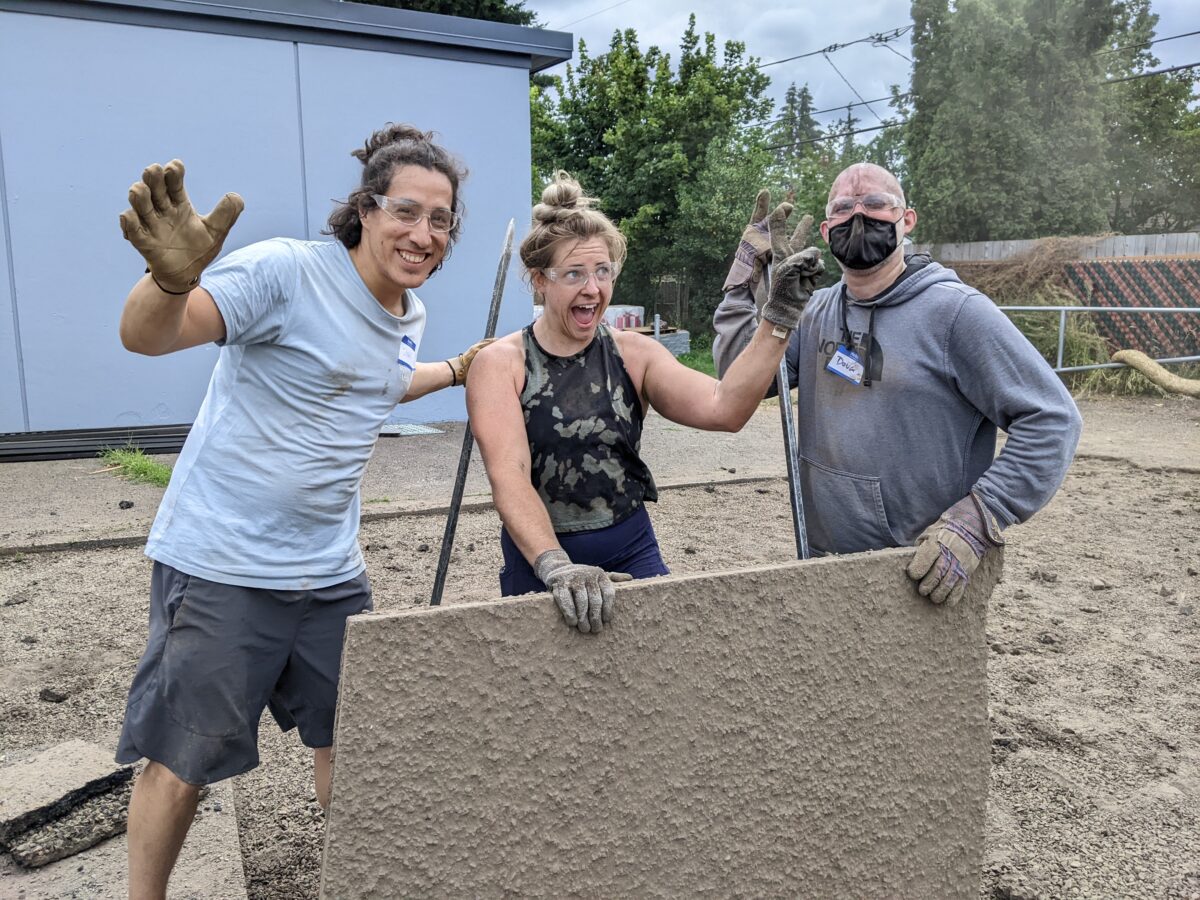

Portland’s Depave organization is known for their work in community engagement. The Depave Network has blossomed many similar depaving organizations around the globe with many more in the works. Mary Pat McGuire, a Chicagoan who is looking to start a Depave Chicago branch, was in attendance to see how Portland puts on a depaving event. Her biggest takeaway: “The collaboration and coordination that everybody had today was awesome!”
Depave’s next depaving event is not until October. But, as we reported last week, they are hosting a block party this Sunday as part of the Blumenauer Bridge opening events. This block party is to showcase how the intersection of SE 7th and Sandy can be made into a community space.
Asphalt covers so much of our city. As our urban canopy continues to dwindle away and as summers get hotter, it is up to the community to decide that there are better uses for our parking lots and paved places. It is beyond time to free more of Portland’s soil from the hot and suffocating burden of this fossil fuel product.



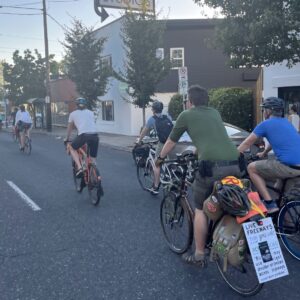

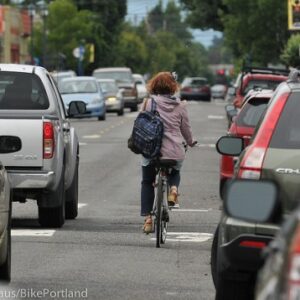
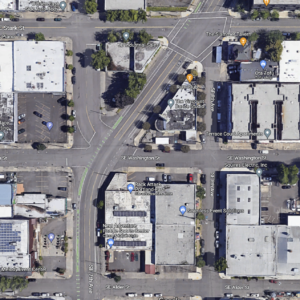
Thanks for reading.
BikePortland has served this community with independent community journalism since 2005. We rely on subscriptions from readers like you to survive. Your financial support is vital in keeping this valuable resource alive and well.
Please subscribe today to strengthen and expand our work.
In addition to asphalt lots, we should be depaving and removing many of our roads. If we want to mitigate and/or adapt to the interlinked climate and biodiversity crises we need to shift funding from absurdly expensive road maintenance to decarbonization and greening of our built environment.
Are they recycling the asphalt?
Such a rad group! Really proud they’re part of the community fabric here in Portland. And looking forward to seeing what we can do with that 7th & Sandy triangle.
I wish they would do this at the old Fred Meyer at 82nd & Foster, most of that parking lot sits unused, especially on the south side of the building. This is one of the hottest places in Portland on a sunny day, and it’s right up the street from me.
On google maps, it looks like that property has almost no interior parking lot landscaping, and limited perimeter landscaping. Zoning requirements for those are tougher now than they used to be, but I’m guessing that over the years required landscaping has been removed (as it has in a high percentage of parking lots). There’s also the possibility (because it happens often) that remodelings over the years should have triggered (but didn’t)adding landscaping, especially within the parking areas.
Since it’s not likely a property like this would voluntarily remove paving, the solution here (or in similar cases) probably isn’t Depave, but rather Portland Zoning Code enforcement. I’m looking forward to a property owner near me removing several illegal parking spaces and all the associated paving, thanks to the City going after them and initiating penalties when the owner didn’t respond quickly enough. It’s a slow but sometimes effective process.